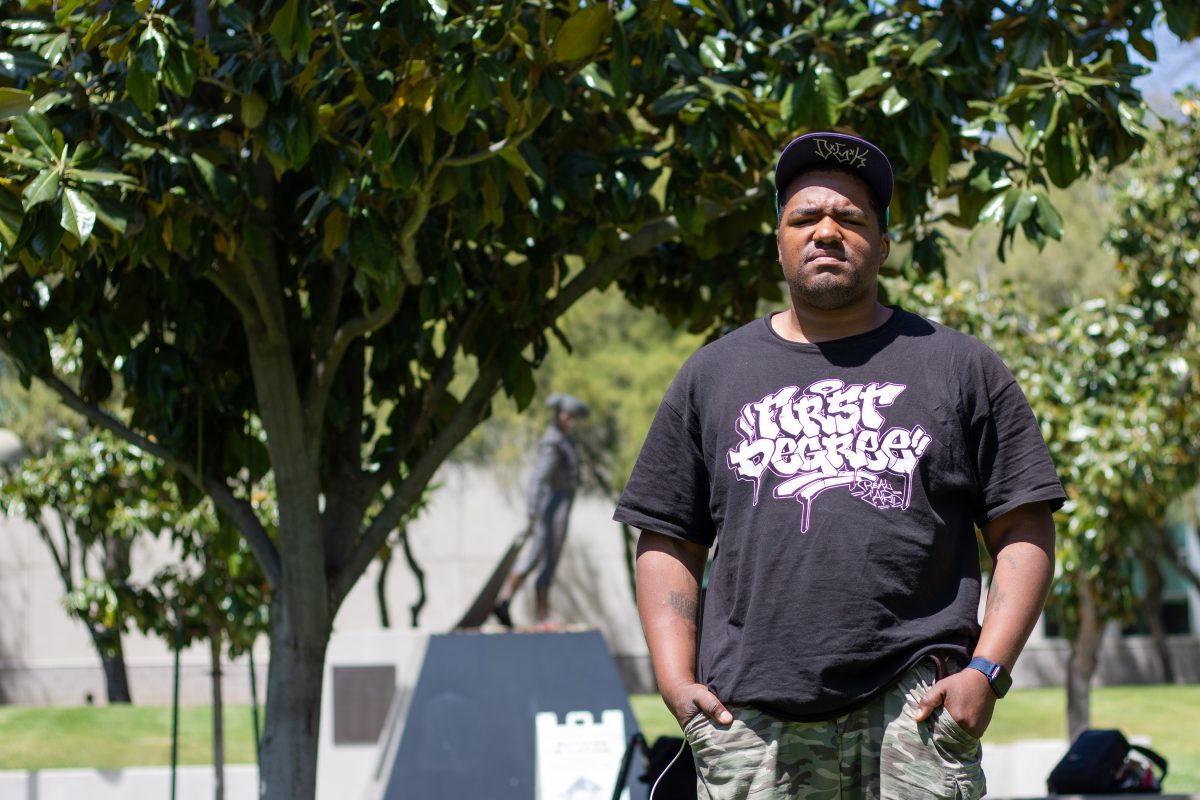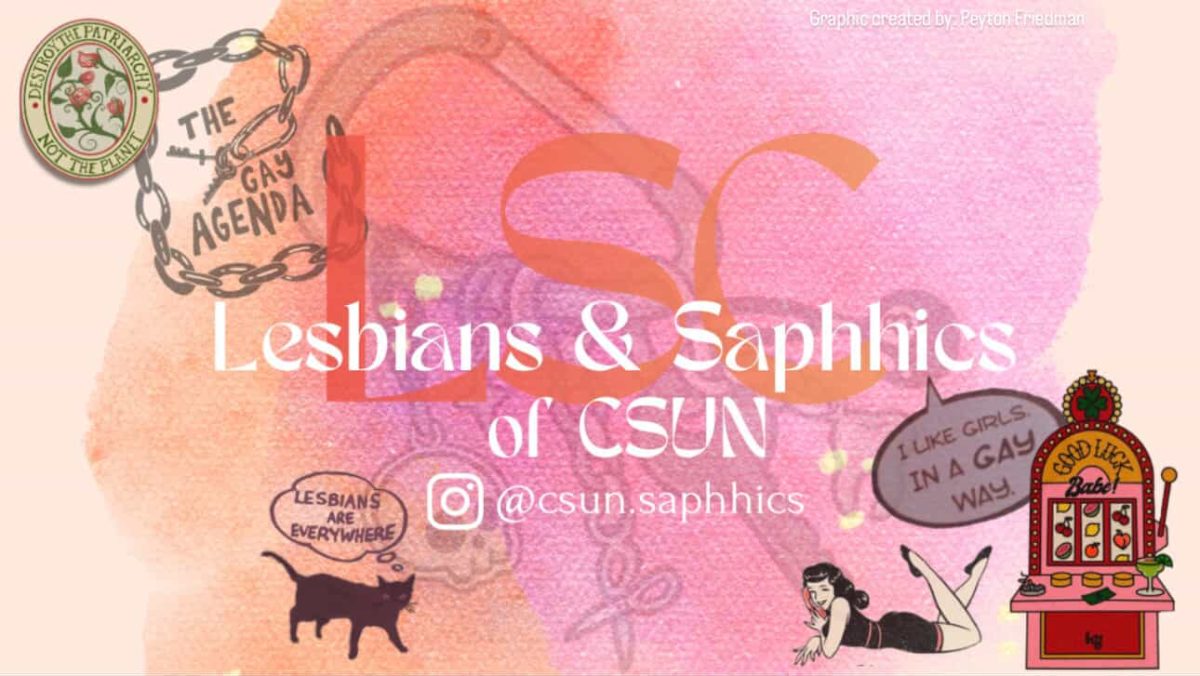In this divisive year of 2024, many are divided between race, party and neurodiversity. These topics came to a head on March 9, 2024, as 15-year-old Ryan Gainer of Apple Valley, California was shot and killed by a sheriff’s deputy after an altercation at his home.
The Gainer family filed a lawsuit against the sheriff’s department on March 21, but no amount of money will be able to regain the life lost.
David Adam Tucker is at the crossroads of being both Black and autistic to share their perspective and thoughts on this tragedy, in addition to highlighting the Black experience on autism and how Black autistic people are more susceptible to being harassed, harmed, or killed by law enforcement.
Tucker is a 32-year-old student majoring in sociology at California State University, Northridge. Tucker aims to become a social worker to help current and former foster youth on the autism spectrum. He is expected to graduate in 2025 or 2026.
Tucker was diagnosed at age six in the 1990s, due to his behavioral patterns. Tucker also authored the book “Autistic and Anointed,” about his experiences being autistic and becoming a minister.
“They knew I was intelligent, but they knew my behavior was different,” Tucker said. “And I would behave erratically in class when I was in kindergarten without knowing why.’’
Tucker explained that after his mom had him tested the doctors informed her about his autism diagnosis, they estimated that at his rate, he would graduate from high school at 22 years old.
Tucker beat the odds by graduating at 18 years old.
Tucker’s mother and the rest of his family advocated for him even when he was bullied in the seventh grade, which was also around the time he first experienced thoughts of suicide and self-harm. Tucker was bullied to ”no end’’ for the most superficial things, such as the type of bike he rode, his love of pro wrestling and wearing Shaquille O’Neal shoes from Payless, while other kids sported Vans, DCs and Jordans.
“No one really ever talked to me,’’ recalled Tucker.
In the fall of 2023, after experiencing a bad breakup with his ex-fiancé, Tucker experienced a mental health crisis on campus. He explained that he had “tunnel vision’’ and was frustrated, leading him to throw electric scooters after attempting to converse with his ex-fiancé with whom he shared a class. However, his anger persisted, leading him to post a message on Snapchat.
Tucker’s message read, “’I don’t give a s**t who sees this post. I’m shooting all the s**t because I’m f*****g over it.’ And by shooting the s**t, I meant I’m going to be talking my s**t.’’
He was using a figure of speech, which was misconstrued as a threat by his ex-fiancé and her friend who shared the message to the CSUN police.
This caused him to be locked out of his Taekwondo class the following day and questioned by a police officer.
“But then I was like, ‘Look, if you’re not going to allow me to explain my side of the story, then I’m done here,’” Tucker said.
Tucker was then arrested for criminal threats and taken to the Van Nuys jail.
The judge rejected his case and Tucker was free to leave without charges.
As a result of the scooter throwing and reported threat, he was subject to an interim suspension.
Later, Tucker was reinstated at CSUN after four letters of character, one from Moshoula Capous, a social worker, and his pastors, Ronald Bolden II, Demarcus Johnson and James Ray Taylor.
“Here’s the thing, even though I’m upset about what happened with the CSUN police, I’m going to be honest, I’m glad. I’m glad I had that experience,” Tucker said. “ Because it taught me, that part of it was, that I got arrested on a false allegation, but another part of it was I let my anger get the better of it.”
After reflecting, Tucker realized that continuing that relationship was not in his best interest. Additionally, he learned to not use social media to voice his frustration.
He now considers himself “blessed” that the situation did not escalate to the level of the Ryan Gainer tragedy.
Tucker believes that the Gainer case was grossly mishandled and is another tragic example of how law enforcement is untrained when interacting with people on the spectrum. He believes that the family should have called a mental health line rather than law enforcement.
Tucker tried to keep himself composed when discussing his thoughts on the tragedy of Ryan Gainer.
“When I had episodes, they wouldn’t call the cops, they would just let me tire myself out,” Tucker shared. “There’s no way in the world that Ryan Gainer should be dead.”
Tucker said that the police treated Gainer like a “deer in a forest.” Tucker has no doubts that Gainer was just another victim of police brutality.
“It makes my blood boil. The reason why is because Black men already have it hard,’’ Tucker said.
He also shared that he never had the chance to meet his father, because his father died at the hands of Arkansas jail guards.
Tucker recounted recent victims whose lives were taken by the brutal and fatal experience of injustice: Breonna Taylor, Atatiana Jefferson, Tamir Rice, and Sandra Bland. He says that being an Autistic Black man makes him more susceptible to difficult interactions with law enforcement and Black youth are typically perceived as being much more threatening than their white and other non-Black counterparts.
The sheriff, Shannon Dicus, said that Ryan was “large of stature,” according to The Guardian, which made him seem more intimidating than he was.
Many articles, such as this piece from The Guardian, show how much Gainer meant to his classmates, and how helpful and loving he was towards his family.
“Your color and your disability don’t define you,’’ said Tucker.

















